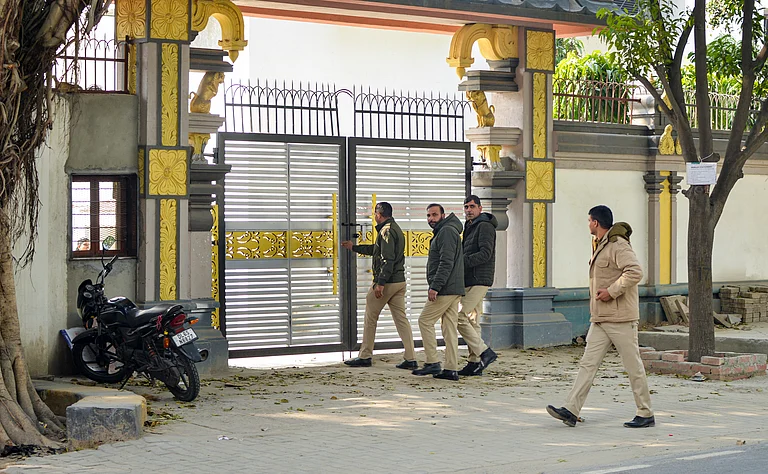Climate change was always a real threat and the weather events of 2023 and 2024 have reiterated the need to focus on adaptation. With the world so far failing to curtail the rise in global greenhouse gas emissions, the shift in climate patterns, it appears, cannot be avoided. In this scenario, acknowledgement of the threat, adjustments in how we live and work, and adaptation become key to dealing with the challenge.
The year 2023 was the warmest on record since the pre-industrial average. Further, global average temperatures have been topping the charts for every month since June last year. In fact, March 2024 was the 10th straight hottest month on record since the pre-industrial (1850-1900) era. Ocean temperatures have also been shattering records and Antarctic sea ice is also at its lowest ever extent.
All of the above point towards a real threat the humanity is facing. The melting of the polar ice due to climate change threatens coastal areas and island nations across the globe. Climate change is something that will affect every single soul on this planet, whether one resides in a developed country or in the poorer part of the world.
In this context, Outlook interviewed Dr Miniya Chatterji, founding director of Anant School for Climate Action, and CEO, Sustain Labs Paris, in order to understand the impact of climate change on future generations, on economy and jobs, and also why we need to prepare our children to become climate warriors from a young age.
Q. Anant National University has established India’s first climate school, Anant School for Climate Action. What was the thought behind this initiative?
The initiative behind establishing India's first climate school, Anant School for Climate Action, is driven by the pressing need to fill the skills gap to meet the surge in climate related jobs across all sectors. There has been a 22.4% increase in the share of job postings requiring 'green' skills in 2022-23 globally. Moreover, India is expected to create 3 million jobs by 2030 and 50 million jobs by 2070 in the climate and energy sector.
Q. Do you think there is a need to include climate change in school curriculum? Will that help raise a generation that is empowered enough to deal with this existential threat?
There is definitely a need to include climate change education in school curricula. It provides students with a foundational understanding of the science behind climate change, its causes, impacts, and potential solutions. This knowledge empowers them to become advocates for climate action in their communities, thereby becoming educated consumers and also hopefully a climate-skilled workforce.
Q. Climate change cannot be reversed, at least in the foreseeable future. Adaptation is the key to tackling it. How do you think jobs are going to evolve in line with the growing threat of global warming?
As the impacts of climate change become more pronounced, there will be a significant evolution in job roles and industries. Adaptation efforts aimed at mitigating and addressing the effects of climate change will create new job opportunities and reshape existing industries. For example, there will be increased demand for professionals skilled in renewable energy technologies, such as solar and wind power, as countries transition towards cleaner energy sources. Similarly, fields such as sustainable agriculture, urban planning, climate resilience, and environmental conservation will experience growth as communities seek to adapt to changing environmental conditions. Additionally, advancements in technology and innovation will play a crucial role in developing solutions to mitigate the impacts of climate change and create new job opportunities in sectors such as green technology, climate modeling, and environmental monitoring. And finally, climate adaptation specialists, who are experts in areas like flood protection, disaster management, and climate-resilient infrastructure will be needed.
Q. Climate change has been dubbed as an existential threat to humanity. We are already witnessing extreme weather events triggered by climate change. 2023 turned out to be the hottest year on record and 2024 could even be worse in terms of warming. What is the takeaway for us all from what is now right before our eyes?
The escalating climate crisis, as witnessed through record-breaking temperatures and extreme weather events, serves as a reminder of the urgent need for collective action. Governments, businesses, and individuals - all have a role to play in addressing this crisis. The impacts of climate change are already being felt around the world, from more frequent and severe heatwaves, storms, and floods to disruptions in ecosystems and agriculture. The takeaway from these events is clear - urgent and decisive action is needed to mitigate greenhouse gas emissions, adapt to the impacts of climate change, and foster global cooperation to address this existential threat effectively.
Q. Your take on the economic impact of climate change.
The economic impact of climate change affects various sectors and regions globally. Direct costs include damage to infrastructure, property, and ecosystems caused by extreme weather events, as well as loss of agricultural productivity due to changes in temperature and precipitation patterns. Additionally, climate-related disasters have led to increased healthcare expenditures and loss of life, further straining economies.
Moreover, indirect costs would include disruptions to supply chains, increased insurance premiums, and decreased productivity in sectors vulnerable to climate risks. However, transitioning to a low-carbon economy presents opportunities for economic growth and job creation in renewable energy, energy efficiency, and sustainable infrastructure.
Investing in climate resilience and adaptation measures can also yield long-term economic benefits by reducing the risk of future climate-related losses and enhancing the overall resilience of communities, especially the most vulnerable ones.

























